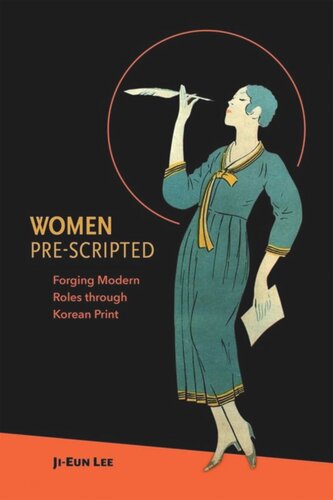

Most ebook files are in PDF format, so you can easily read them using various software such as Foxit Reader or directly on the Google Chrome browser.
Some ebook files are released by publishers in other formats such as .awz, .mobi, .epub, .fb2, etc. You may need to install specific software to read these formats on mobile/PC, such as Calibre.
Please read the tutorial at this link: https://ebookbell.com/faq
We offer FREE conversion to the popular formats you request; however, this may take some time. Therefore, right after payment, please email us, and we will try to provide the service as quickly as possible.
For some exceptional file formats or broken links (if any), please refrain from opening any disputes. Instead, email us first, and we will try to assist within a maximum of 6 hours.
EbookBell Team

4.0
46 reviewsWomen Pre-Scripted explores the way ideas about women and their social roles changed during Korea's transformation into a modern society. Drawing on a wide range of materials published in periodicals—ideological debates, cartoons, literary works, cover illustrations, letters and confessions--the author shows how at different times between 1896 and 1934, the idea of modern womanhood transforms from virgin savior to mother of the nation to manager of modern family life and, finally, to an embodiment of the capitalist West, fully armed with sexuality and glamour.
Each chapter examines representative periodicals to explore how their content on a range of women's issues helped formulate and prescribe women's roles, defining what would later become appropriate knowledge for women in the new modern context. Lee shows how in various ways this prescribing was gendered, how it would sometimes promote the "modern" and at other times critique it. She offers a close look at primary sources not previously introduced in English, exploring the subject and genre of each work, the script used, and the way it categorized or defined a given women's issue. By identifying and dissecting the various agendas and agents behind the scenes, she is able to shed light on the complex and changing relationship between domesticity, gender, and modernity during Korea's transition to a modern state and its colonial occupation.
Women Pre-Scripted contributes to the swell of research on Asian women in recent years and expands our picture of a complex period. It will be of interest to scholars of Korean literature and history, East Asian literature, and others interested in women and gender within the context of colonial modernity.